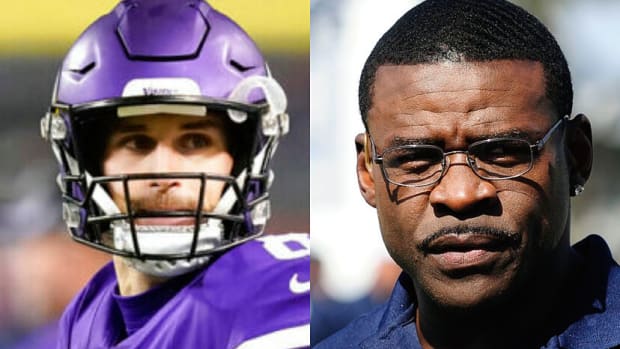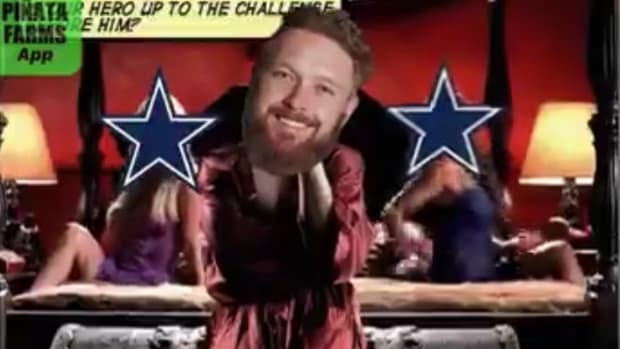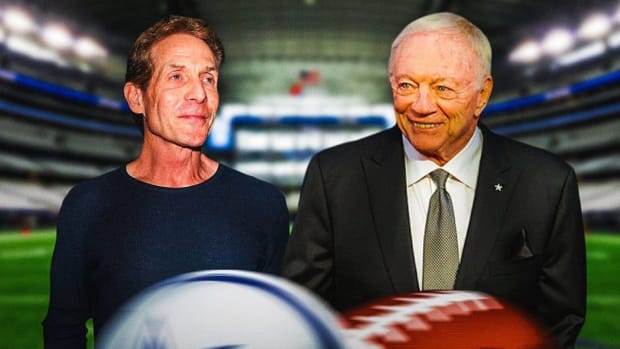Pot, Power & Playoffs: How NFL CBA Proposal Would Impact The Cowboys
FRISCO - For the last few years, especially in the wake of the NFL's mishandling of the Ezekiel Elliott behavioral case, I've called for the NFLPA to replace what it's been using for brains, muscles and balls - raisins, raisins and more raisins - and attempt, for the first time, to actually win a Collective Bargaining Agreement negotiation with the league.
As the NFL owners have created a new CBA proposal (now up for a vote by the 32 players' reps, and then, if approved by two-thirds of them, a vote by the general population of players) there are three particular areas I've wished for the NFLPA to "win":
1) The abolishment of the insidious Article 46. 2) The decriminalization of pot. 3) Real money as befitting a partnership - especially if the league intends to expand the playoffs by two teams and to expand the regular season to 17 games.
Does this new proposal provide some NFLPA victories? And how - in those three categories, beyond the franchise-tag implications that I address here regarding Dak Prescott and Amari Cooper - does it impact the Dallas Cowboys? My analysis:
1) Article 46: As it stands, to put it simply, the NFL commissioner can punish a player who engages in "conduct detrimental to the integrity of, or public confidence in, the game.'' But under the new CBA, the commissioner is stripped of that all-encompassing power, a power most notably exercised in the Elliott case, in which he served a six-game suspension in 2017 despite the lack of legal-level evidence of any wrongdoing.
Commissioner Roger Goodell served as judge, jury and executioner in great conflict with the way the American legal system works. And due to Article 46, he was able to do so at any time and for any reason to any player. He was also empowered to not do do - and as a result, some players who've been guilty of domestic violence has received 10-game bans, some one-game bans, some no bans at all.
Goodell's 2017 letter to Elliott essentially warns him that going forward, any negative interactions with law-enforcement officials could result in a "lifetime ban.'' That's not a legally-reasonable order.
And now? Under the new proposal, cases would go before "a neutral arbitrator.'' Assuming the "neutral arbitrator'' isn't one hand-selected by Goodell, this is a major win for the NFLPA, and for each and every player, including Elliott, who needn't be quite as concerned that any random accusation from any random person might end in a kangaroo-court suspension.
2) The decriminalization of pot. I hope the NFLPA realizes that it didn't actually "win'' this; owners wanted the players to have this, finally realizing that annual season-opening suspensions of a company's best employee (think Le'Veon Bell in Pittsburgh) is really bad for the company's business.
Under the new proposal, there is a tiny window of testing (two weeks at the start of camp, rather than four months) and even a failed test means a fine, not a suspension. I've seen some people portray the new THC bylaws as being "Randy Gregory-friendly,'' and I hope that is the case. But Gregory himself will tell you that his issues go beyond his use of marijuana as a medical coping tool; it would be misleading to suggest that Randy is suddenly good to go as a football player just because of the rule change.
Cowboys owner Jerry Jones isn't "pro-pot'' because of Randy; he's "pro-pot'' because it's long been self-defeating bad business to be otherwise.
The next big step step here: A subtle shift from "decriminalization'' to full acceptance of THC as a medical/psychological benefit.
3) Real money as befitting a partnership. One great advantage NBA players have over NFL players is a financial construct that makes basketball players feel like they're "partners'' in the league. Their revenue share has long been 50 percent; makes partnership sense, right? Additionally, a recent check shows the average NBA player's salary is $7.8 million guaranteed, while the average NFL player's salary is about $900,000. ... non-guaranteed.
Given the fact that NFL players are literally putting their lives as risk, that's outrageous. So some changes, most of them tied to giving more money to players in exchange for the added workload that will come with a 17-game regular season and more playoff games ...
Minimum salaries (now $590,000) will jump by $90,000 ... Medical care, especially post-career, will be improved. ... A couple of cap exceptions to pay more salary and added benefits for practice-sqaudders.
Some of the previous medical-insurance issues were absurd. (NFL players' medical plans didn't include coverage for "vision''? Same with some of the playoff-money concepts. (If a team earned a playoff bye, it didn't get paid ... meaning the No. 1 seed's players make less in the postseason than the No. 6 seed.)
Some of the new ideas don't seem like enough. For instance: The amount of pay a player makes for his 17th game is capped at $250,000, even if his usual game-week check exceeds that. Additionally, I'll go back to the 50/50 argument: The owners are offering a 48.5-percent revenue share. Why shouldn't the players/partners demand 50 percent?
Also worth noting regarding a "partnership'': The owners plan on bulling ahead with the expanded playoffs, believing that's not a CBA-related issue. Maybe that is their right. But maybe they should be trying to olive-branch the idea rather than "bulling'' it.
With the expanded playoffs, one more team in each conference will make the NFL Playoffs. Maybe there is a saturation risk, or maybe the world's appetite for football will simply be fed. And how does a seventh team making the NFC Playoffs help the Dallas Cowboys?
Historically, sadly and surprisingly, not at all, given that in the last 10 years, had there been a No. 7 seed in the NFC, Dallas wouldn't have played in even one more postseason game.




